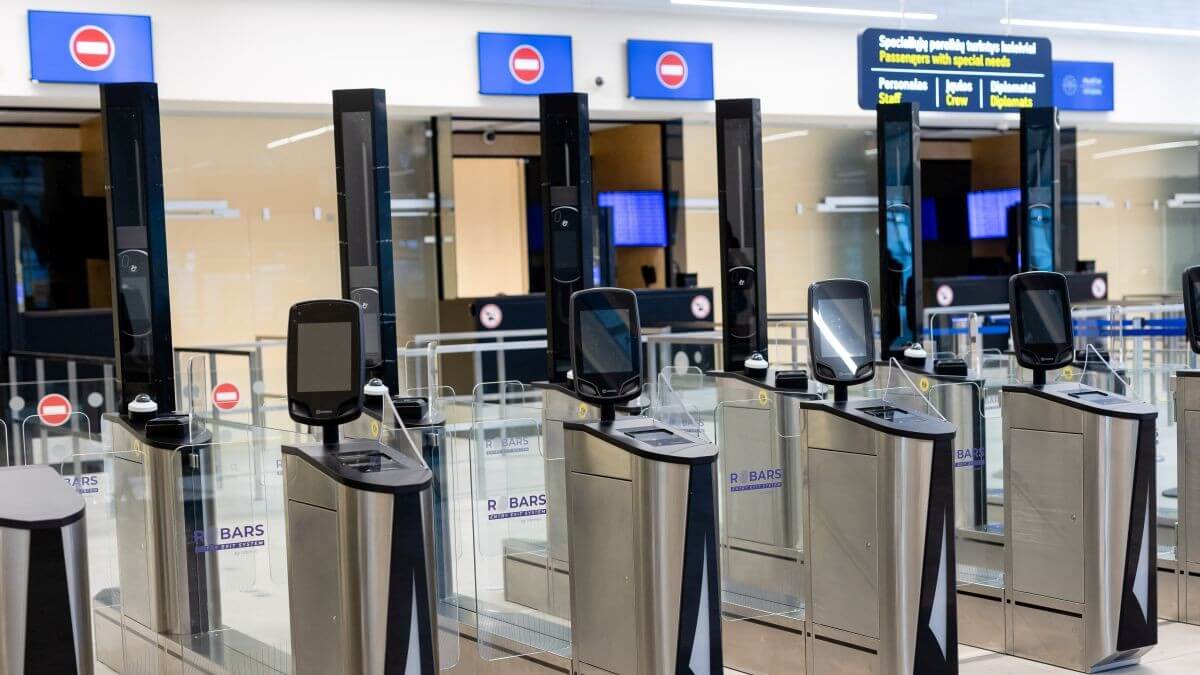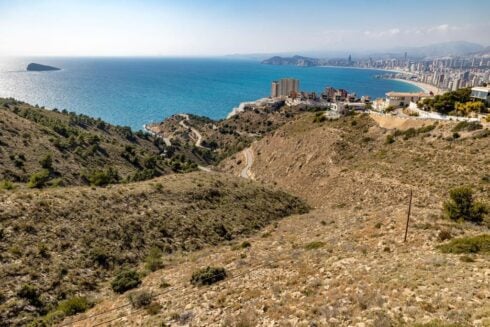BRITS are facing a clamp down on access to their second homes in Spain when the EU’s new digital border system starts next week.
From this coming Sunday, October 12, Brussels will begin rolling out its new Entry/Exit System (EES), a continent-wide biometric database that automatically records when non-EU citizens enter and leave.
This impending date will mean an end to second-home owners being able to discretely get away with overstaying their time in the Schengen zone with the help of friendly border guards.

The scheme, which will be fully operational by April, will end the patchwork enforcement of the so-called 90/180 rule that has defined the post-Brexit years for many Brits.
Currently, UK nationals without an EU passport or residence rights are restricted to just 90 days in any rolling 180-day period inside the Schengen area.
In theory this has always applied, but in practice many border officials relied on manual passport stamps and often ‘turned a blind eye’ to those who overran their allowance.
READ MORE: The top 10 European airports most likely to suffer travel chaos when the EES kicks in next month
Under EES, this leniency will vanish.
Every British traveller entering Spain or any other Schengen state will have their fingerprints and photograph taken and stored at their first crossing.
After that, each entry and exit will be logged automatically, allowing the system to calculate days spent inside the bloc and flag any overstay.
Officials in Brussels have instructed member states to enforce the rule rigorously once EES is active. Those who breach it risk fines of up to €10,000 and bans of up to ten years from the EU.
The move has been described by industry figures as a ‘wake-up call’ for second-home owners who have been stretching the rules since the UK left the bloc.
A source told The Times: “Governments on both sides of the Channel are aware that some people have been breaching the time limits.
“We have been told that because the system will automatically flag people, the enforcement is going to be much stricter. For people who can’t, for whatever reason, get residency, it’s going to be a big wake-up call.”
Madrid-Barajas will be the first Spanish airport to activate the system on October 12, with Barcelona, Malaga, Alicante, Palma and the Canary Islands expected to follow within weeks.
By November and December the system is expected to be in place at key land borders – spelling a headache for the 15,000 workers who cross the Gibraltar land border at La Línea each day.
Seaports such as Algeciras, Cadiz, Barcelona and the main Balearic and Canary Island ferry terminals are due to join the scheme over the winter, before full nationwide coverage is reached in April.
From April 10, 2026, traditional passport stamping will end across Spain, with the biometric EES fully operational at every airport, seaport and land border.
During the first six months, border guards may still stamp passports as a back-up. However, the stamps will no longer be decisive once the digital system is fully in place.
The Foreign Office has now issued new advice to warn British travellers of the change.
Brits who are legally resident in the EU will be exempt from registering with EES, provided they can show the Tarjeta de Identidad de Extranjero (TIE).
At the Association of British Travel Agents’ (ABTA) annual conference in Magaluf this week, the issue has dominated discussion.
READ MORE: Spain’s airport operator accuses Ryanair CEO of ‘lying continuously’ in row over ‘excessive fees’
Luke Petherbridge, ABTA’s director of public affairs, said: “It will mean that those who are breaching the 90/180-day rule will be automatically detected.
“We know that hasn’t really been happening. A number of countries haven’t really been doing that check particularly closely. Most, if I’m honest about it.”
He added: “It will be from April when it will automatically be detected in every country.
“The advice for those who own a second home will be to go down the residency route in those countries and ensure, therefore, you are exempt.”
Spain is considered the country with the highest number of second-home owning Britons who may be affected, making it the epicentre of the looming clampdown.
Click here to read more Spain News from The Olive Press.








